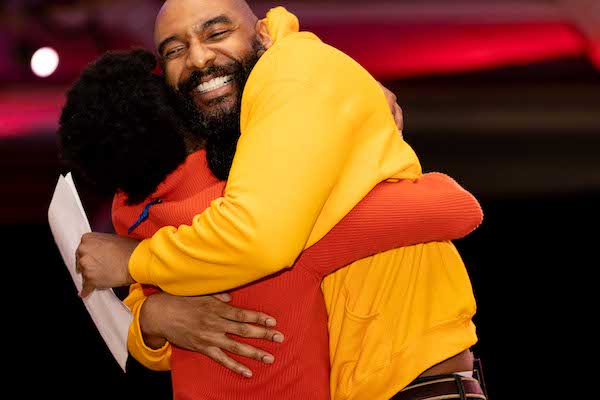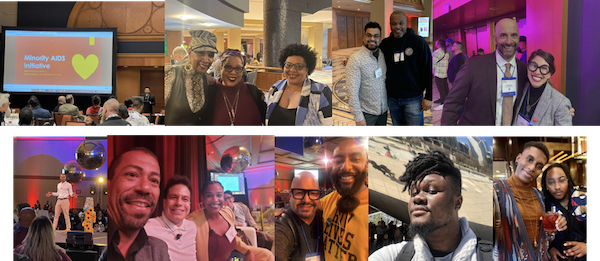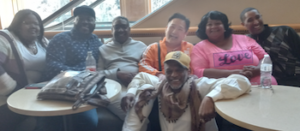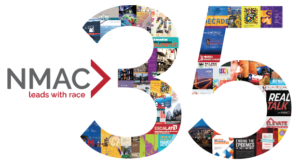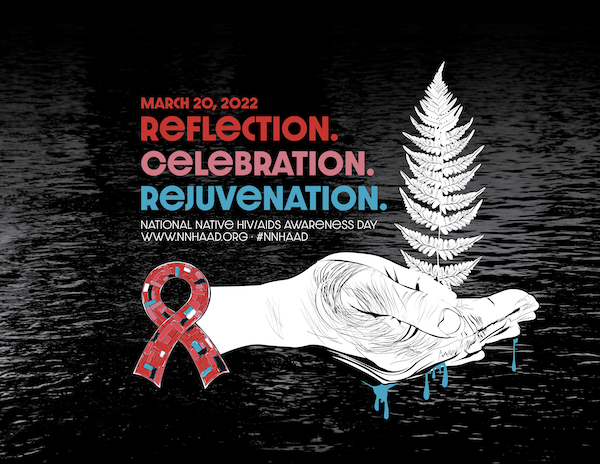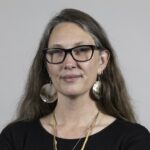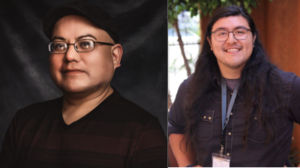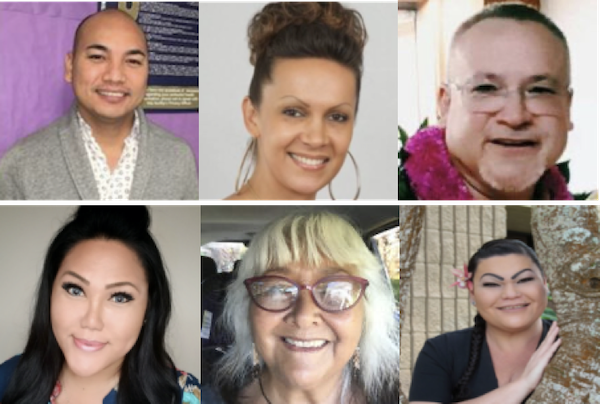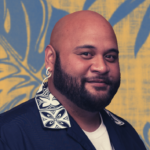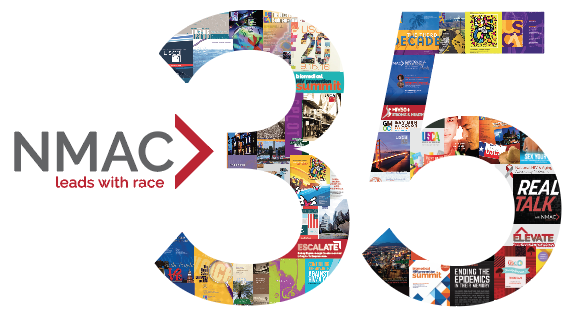Summit Covid Update
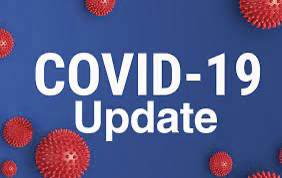 NMAC was very concerned about hosting an in-person event. Transparency and proof of vaccinations were key to this year’s summit. Our relationships are built on trust and the agency felt a responsibility to be open about the impact COVID had on the Summit. Here is what I know: the one person who asked for a COVID test wrote to say they were negative. In fact, they took the test in Chicago and upon their return home to confirm. Three (3) people tested positive. No one went to the hospital or passed. Symptoms included throat irritations, coughing, some lethargy, mild cold/flu symptoms. All three have isolated. They are conducting home tests with a negative PCR follow-up before they return to work. NMAC wishes them a speedy recovery and please keep us informed.
NMAC was very concerned about hosting an in-person event. Transparency and proof of vaccinations were key to this year’s summit. Our relationships are built on trust and the agency felt a responsibility to be open about the impact COVID had on the Summit. Here is what I know: the one person who asked for a COVID test wrote to say they were negative. In fact, they took the test in Chicago and upon their return home to confirm. Three (3) people tested positive. No one went to the hospital or passed. Symptoms included throat irritations, coughing, some lethargy, mild cold/flu symptoms. All three have isolated. They are conducting home tests with a negative PCR follow-up before they return to work. NMAC wishes them a speedy recovery and please keep us informed.
As with HIV testing, confidentiality is important. NMAC does not have the names of any of the individuals nor did we ask for any unique identifiers. We share this information to help the field understand the impact that COVID had on a large HIV meeting with 1,033 participants. These are very uncertain times and there is no playbook.
 As we’ve learned with safer sex, only abstinence was 100% safe. For the rest of us, we had to look at the relative risk we were willing to take to both have sex and be safe. There are very real reasons to stay in a COVID bubble. As an old man living with cancer, I understand. After my fourth (4th) shot, I started to rethink my strategy. Like the early days of safer sex, each of us had to figure our personal level of comfort having different kinds of sex. Kissing was my line in the sand, for me it was an essential part of the experience and not something I was willing to give up. Way too much information from grandpa. COVID, like HIV, asks us to weigh the risk and understand the consequences.
As we’ve learned with safer sex, only abstinence was 100% safe. For the rest of us, we had to look at the relative risk we were willing to take to both have sex and be safe. There are very real reasons to stay in a COVID bubble. As an old man living with cancer, I understand. After my fourth (4th) shot, I started to rethink my strategy. Like the early days of safer sex, each of us had to figure our personal level of comfort having different kinds of sex. Kissing was my line in the sand, for me it was an essential part of the experience and not something I was willing to give up. Way too much information from grandpa. COVID, like HIV, asks us to weigh the risk and understand the consequences.
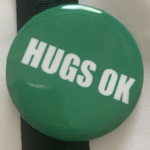 Beyond the physical, there are the psychological considerations. COVID created PTSD that we still don’t fully understand. Secretly, I judged and envied friends who jumped back quickly. Going to Chicago was my test. As an informal way to look at our movement, NMAC asked participants to wear a button with their level of comfort being hugged. Overwhelmingly, participants selected the hug button. In fact, the meeting quickly ran out of them. While not scientific, it shows how much people wanted to reconnect. To a person, everyone said they were glad we did not cancel.
Beyond the physical, there are the psychological considerations. COVID created PTSD that we still don’t fully understand. Secretly, I judged and envied friends who jumped back quickly. Going to Chicago was my test. As an informal way to look at our movement, NMAC asked participants to wear a button with their level of comfort being hugged. Overwhelmingly, participants selected the hug button. In fact, the meeting quickly ran out of them. While not scientific, it shows how much people wanted to reconnect. To a person, everyone said they were glad we did not cancel.
I’m publicly sharing NMAC’s experience because similar challenges face our movement. It might not be about conferences, but it is about getting back to normal. COVID changed the world and I don’t think we can go back to the way things were. Trusted voices were critical in COVID and they continue to play important roles in efforts to end the HIV epidemic. Over one thousand people came to Chicago because they trusted that NMAC would not put them in unnecessary danger. That trust is the result of over 30 years of leadership and collaboration.
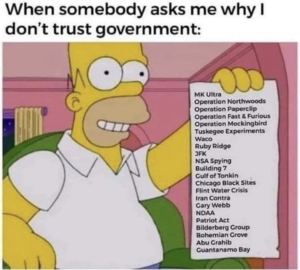 As we learned with vaccine hesitancy, many people do not trust the government, particularly people of color. As we work to figure out solutions for ending the epidemic, the government needs to be more transparent. COVID exposed many problems with the status quo that will hopefully get fixed before the next virus. We will never end the HIV epidemic if we continue with that same status quo. NMAC challenges our federal colleagues to use what was learned under COVID and apply it to HIV. When I talk about not being able to go back to the way things were, that includes our fight to end HIV. Nobody wants to go back to 35,000 new cases a year where 49% of the people living with HIV are not retained in medical care.
As we learned with vaccine hesitancy, many people do not trust the government, particularly people of color. As we work to figure out solutions for ending the epidemic, the government needs to be more transparent. COVID exposed many problems with the status quo that will hopefully get fixed before the next virus. We will never end the HIV epidemic if we continue with that same status quo. NMAC challenges our federal colleagues to use what was learned under COVID and apply it to HIV. When I talk about not being able to go back to the way things were, that includes our fight to end HIV. Nobody wants to go back to 35,000 new cases a year where 49% of the people living with HIV are not retained in medical care.
Because people were stuck at home, I got many more readers. While I appreciate everyone’s kind words, Chicago opened my eyes to my responsibility. NMAC’s platform reaches thousands of readers on a weekly basis. I never take that for granted and work to keep our movement informed. Ending the epidemic will not happen by magic. We need to fight to bring the promise of PrEP and U=U to all the communities highly impacted by HIV. Hopefully, I will see you in Puerto Rico!
Yours in the Struggle,
Paul Kawata
NMAC
What A Summit!
1,033 people attended the 2022 Biomedical HIV Prevention Summit. Thank you to everyone who made the meeting a success. After two years of isolation, I needed this meeting more than I realized. My chosen family heals my soul.
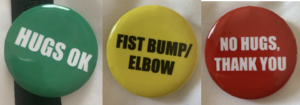
Buttons were the favorite swag. People wore them to signal their comfort hugging. I appreciate everyone who choose to wear a mask, as COVID is not over. There was only one request for a rapid COVID test and we don’t know the results. NMAC is committed to transparency. Our relationship is built on decades of trust and collaboration. That means sharing information no matter how difficult. If you got COVID please let us know so we can inform others.
Thank you for all the emails and social media posts. I agree it was good to be back together. Pictures posted on Facebook and Instagram document the diversity of our movement. A White friend shared that NMAC’s meetings were an important experience of what it means to be “other.” To be in a space where you are not the majority can be humbling and scary. It is important to understand, support, and, dare I say, love the communities our movement needs to reach. HIV introduced colleagues from different worlds and my life is so much richer. COVID gave a renewed appreciation for our friendships. Thank you for joining us in Chicago, it was amazing to be back together.
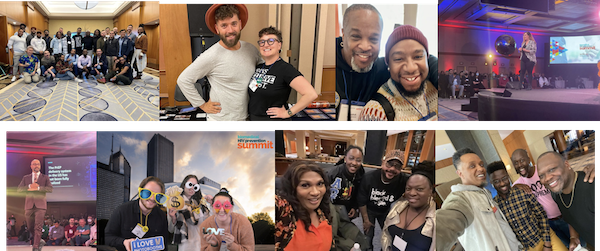
I did not speak at this year’s Summit. That was purposeful. At some point I’m retiring (this is not an announcement), so the agency works to bring new voices to the table, particularly NMAC employees. I’m proud and blessed to have staff who don’t need me. This allows me to be me. After 33 years on the job, it is still an amazing privilege to speak truth to power, to talk about race and not hide behind the “social determinants of health,” to celebrate being gay without the cover of “men having sex with men.” The Black AIDS Institute calls out being unapologetically Black in its solutions to end the epidemic and I’m there for it. NMAC works hard to make our meetings a safe space where people can be themselves. Right now, the world is very scary. It’s good to be with family during these difficult moments.
There was the public meeting and then there are the conversations that happened privately. In the past, people of color were mostly tokenized in these chats. We got to the table because Reggie Williams, Kiyoshi Kuromiya, Dennis deLeon, Marty Prairie, Janet Mitchell, and many others fought for us. NMAC’s backdoor discussions were about the Minority AIDS Initiative and the President’s national PrEP initiative. These two issues are intertwined with our fight for racial justice and health equity to end the HIV epidemic. History will judge what happened to the Minority AIDS Initiative, so we are fighting to make sure that lesson does not repeat.
I’m writing publicly about these conversations because there are millions and in the case of a national PrEP initiative, billions on the table. We desperately need a united front. This will be a test of our movement’s leadership. The fact that our struggle happens in the middle of the fight for the soul of America is not missed on me. It’s time to get busy. Right now, solutions are being considered that will impact our ability to end the HIV epidemic in America.
Yours in the Struggle,
Paul Kawata
NMAC
*Rita, thank you for the picture! We look good.
Safety is Everyone’s Responsibility
We are one thousand strong at this year’s Biomedical HIV Prevention Summit in Chicago. Here is the agenda. We look forward to seeing everyone at the Sheraton Grand Riverwalk Chicago. It’s been a long time. However, COVID is not over, and everyone must take care. While participants are required to show proof of vaccination in advance, there are no guarantees. NMAC is particularly concerned about people who are immune compromised.
Hotel staff are wearing masks at NMAC’s request. There will be outdoor spaces to eat meals; however, the temperature will be cool. Bring a jacket or sweater. If you are not feeling well, stay home or in your hotel room. Contact the conference office if you need a “free” COVID test. Anyone with COVID will be required to isolate until they test negative.
The Summit is not only an opportunity to learn the latest on biomedical HIV prevention, but also a place to build a movement. This year’s Summit includes many new leaders looking for programs that reach and keep their communities healthy. This year there are large delegations from:
- Chicago House
- Arianna’s Center
- Indian Health Service
- NAESM
- NMAC’s Young Gay Men of Color PrEP fellows
- NMAC’s Storytelling Project
President Biden put forward a budget recommendation for a new national PrEP plan. Conversations about the plan and PrEP will likely dominate the gathering. While NMAC is very thankful for the President’s plan, we ask our movement to consider the following:
- Differences in opinion about PrEP program priorities
- Very heavy lift in Congress
NMAC is concerned that current PrEP programs miss too many people of color. The data say that 42% of the new cases of HIV are among African Americans, yet only 8% of the people on PrEP are Black. 29% of new cases are Latinx while only 14% of the people on PrEP are Latinx. White Americans are 28.5% of new cases of HIV and 63% of the people on PrEP. I was challenged figuring out PrEP utilization for Native Americans, Alaska Natives, Asians, Native Hawaiians, or Pacific Islanders. How do we fix PrEP for communities of color?
Even if community agrees on a pathway forward, there is still a very heavy lift in Congress. As part of his FY23 budget recommendations, President Biden put $213 million in mandatory spending for a new national PrEP Initiative. Over the next 10 years this program is budgeted at $9.8 billion. While I believe our movement has some of the best policy staff working the Hill, the “mandatory” nature of this spending makes it a unique challenge to pass in Congress.
In other words, there is plenty to discuss and lots of concerns. Special thank you to Gilead, ViiV, and MISTR for their support of the meeting, the faculty for sharing the latest information on biomedical HIV prevention, the Chicago Host Committee, attendees for traveling during this confusing time, and NMAC’s staff for making this meeting a reality.
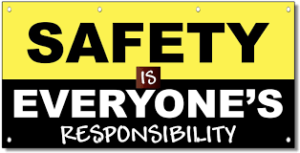 I just got my fourth booster, so I’m feeling ready. For everyone staying home, I completely understand. We are trying our best to keep everyone safe but, as we’ve learned from safer sex education, safety is everyone’s responsibility. We are not just looking out for ourselves; we must also care for other attendees.
I just got my fourth booster, so I’m feeling ready. For everyone staying home, I completely understand. We are trying our best to keep everyone safe but, as we’ve learned from safer sex education, safety is everyone’s responsibility. We are not just looking out for ourselves; we must also care for other attendees.
Yours in the Struggle,
Paul Kawata
NMAC
We’re Coming Back!
Like so many organizations, NMAC has worked remotely over the last two years. Recently, we held our first in-person all staff retreat. It was a trial run for the in-person opportunities and challenges at the 2022 Biomedical HIV Prevention Summit. Honestly, I was a little nervous. It’s been 24 months of seeing everyone only in those little zoom boxes. How would it be to come together? Would we find our groove or has the work paradigm completely transformed?
I’m sharing because, in three weeks, we are gathering in Chicago for the 2022 Summit. For many of us, this will be our first big gathering. It is hard to know what to expect and initially the meeting might be very socially awkward. With the BA2 variant, there are real concerns. As we learned during the early days of safer sex education, there are no guarantees. Condoms offered a high level of protection, but they are not fool proof. Please use good judgement. If you are not feeling well, stay home or in your hotel room.
Here’s the thing about the in-person all staff meeting: after some initial awkwardness, it was great to see everyone. We easily fell back into our groove and realized how much we missed each other. At the same time, we learned how COVID has changed the nature of how we work. NMAC has the privilege of working remotely and I don’t think we will be going back regularly into an office. Being together was valuable and I missed the unscheduled interactions with staff, but the commute is hell. If anything, we are more productive working from home.
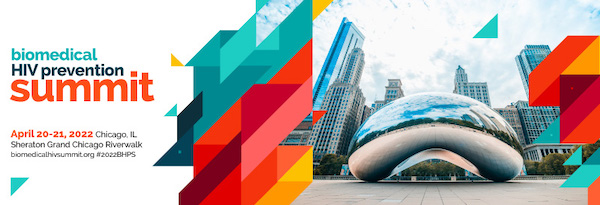
Here are some of the guidelines to help make the Summit safer for everyone:
- Everyone must register and show proof of vaccination in advance of attending the meeting. Due to the need to confirm vaccination for each registrant, there will be no onsite registration. Registration will close and vaccine confirmation must be done by Friday, April 8. Vaccine confirmation must be done on this website. If we do not receive vaccine credentials, registrants will not be allowed entry,
- Masks are encouraged but not required. The Summit will follow the City of Chicago’s COVID requirements. Nobody should be “shamed” if they choose to wear a mask.
- Rapid tests are available for free onsite. If you are not feeling well, please stay home or in your hotel room. Contract the conference office for the test.
- Hugs OK, Elbow, or Do Not Touch indications will be written on the bottom of name tags. Please honor attendees’ boundaries and understand we are all in difference places,
- NMAC has a COVID protocol should anyone get sick. Contact the conference office for support. Our policy requires anyone who tests positive for COVID to isolate until they get a negative test.
- NMAC will support additional hotel nights for scholarship recipients who test positive for COVID. Other attendees will be required to cover their own costs.
We will be 1,000 strong in Chicago. There are critical issues and organizing needed to move our work. COVID has been a real setback and there are many unknowns about the current state of the epidemic. Has COVID isolation resulted in more or less HIV? Looking at the STD numbers is very concerning. Getting ready for Chicago might create some anxiety. That should be expected. It’s been a long time since we’ve been together. After two years of zoom calls, I’m not sure how to act around real people whom I can hug. Like most things in our work, we will get through this together.
Yours in the Struggle,
Paul Kawata
NMAC
Dear President Biden
President Joe Biden
The White House
Washington, DC
Dear President Biden,
Thank you for your steady hand during these difficult times. With the world on fire, it is easy to become overwhelmed and scared. Your FY23 budget sent an important message about your commitment to end the HIV epidemic. Your initial commitment or $213 million in mandatory funding to Pre-Exposure Prophylaxis (PrEP) Delivery Program to End the HIV epidemic is a critical step to bring the promise of PrEP to all communities highly impacted by HIV. And, most importantly, thank you for your overall commitment for $9.8 billion in funding over 10 years to guarantee PrEP at no cost for all uninsured and underinsured individuals.
Disappointingly, the request misses an opportunity to combat record high STDS like gonorrhea, chlamydia, and syphillis. NMAC strongly urges Congress to supplement the President’s request with significant additional resources to combat rising STD rates and for the Administration to support this increase through the Congressional process.
Now the HIV community must work quickly with Congress to pass the budget. With all the divisions on the Hill and the midterm elections this fall, our window is short. Passing the budget will be a very heavy lift and there are no guarantees. NMAC is ready and willing to do what it takes; however, this needs to be a team effort that includes national, state, and local partners. NMAC will prioritize community and the important voices of people of color, particularly those living with HIV.
In anticipation of your budget, NMAC’s board of directors authorized spending reserve funds to support additional beltway professionals. We are going full Washington, DC in partnership with AIDS United, NASTAD, NCSD, and the AIDS Institute. For a small minority organization like NMAC, this is a big deal. I am so proud the board was willing to take this risk with no guarantees. We sold our corporate headquarters a few years back, the money from this sale created our rainy-day nest egg. NMAC is betting a portion of our future on passing the FY23 budget. That’s how much we believe in this administration and our movement.
A PrEP delivery program must work hand in glove with our efforts to Ending the Epidemic, but the devil is in the details. As the data show, African Americans make up 45% of the new cases of HIV, yet they are only 8% of the people on PrEP. In the near term, NMAC will put together a series of recommendations on program implementation, but right now we wanted to say thank you. I came to Washington in 1985 to fight an epidemic that was killing people I loved. I never imaged I would still be here in 2022. Passing your FY23 budget is an important next step for our work to end the HIV epidemic. Thank you for believing in the science of PrEP and the need to bring this important tool to all the communities highly impacted by HIV.
Yours in the Struggle,
Paul Kawata
NMAC
How to Submit an Abstract for 2022 USCHA
National Native HIV/AIDS Awareness Day
March 20 was National Native HIV/AIDS Awareness Day. On this important day, NMAC stands in solidarity with Native communities as they work to end the HIV and Hepatitis epidemics. As 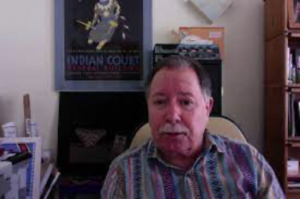 part of NMAC’s 35th Anniversary, I wanted to share the story of Ron Rowell. Ron was not only the founder of the National Native American AIDS Prevention Center, he was also an original NMAC board member. Ron told his story as part of the 2020 International AIDS Conference. Back in the ’90s, we were part of a cabal of people of color working to fight and collaborate with the Centers for Disease Control and Prevention as they built the CDC’s community planning process. Other leaders included Reggie Williams from the National Task Force on AIDS Prevention and Charlene Dora Ortiz from San Antonio. We were a powerful and hell raising coalition of people of color who understood the value of collaboration.
part of NMAC’s 35th Anniversary, I wanted to share the story of Ron Rowell. Ron was not only the founder of the National Native American AIDS Prevention Center, he was also an original NMAC board member. Ron told his story as part of the 2020 International AIDS Conference. Back in the ’90s, we were part of a cabal of people of color working to fight and collaborate with the Centers for Disease Control and Prevention as they built the CDC’s community planning process. Other leaders included Reggie Williams from the National Task Force on AIDS Prevention and Charlene Dora Ortiz from San Antonio. We were a powerful and hell raising coalition of people of color who understood the value of collaboration.
NMAC is fortunate to work with so many leaders in the American Indian, Alaska Native, Native Hawaiian and Pacific Islanders.
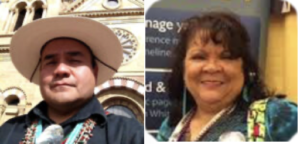
Christopher J. Paisano (above left) is NMAC’s program coordinator for Indian Country. His email is CPaisano@nmac.org or 202-997-0396. Christopher is a member of the Navajo Nation and lives in Fort Defiance, Arizona – the Navajo Nation. He is Kinlichiiní (Red House People Clan) and born for Tohtsoni (Big Water People Clan). His maternal grandfather’s clan is Taachiiní and his paternal grandfather’s clan are Haatbani Hanuu from Laguna Pueblo. Brenda Hunt (above right) is a long term NMAC board member from the Lumbee Tribe of North Carolina.
American Indian and Alaska Native CAP Members
Here is the American Indian and Alaska Native Community Advisory Panels (CAP). Its members include (from left to right by row): Kerry Hawk Lessard (upper left), of the Shawnee tribe and the Executive Director of Native American Lifelines; Savannah Gene (upper middle), a proud member of Diné Nation. She is Totsóhnii (Big Water Clan), born for Hashk’áánhadzohí (Yucca Fruit Strung Out in a Line Clan). Her maternal grandfathers are Ta’neeszahnii (Tangle People Clan) and her paternal grandfathers are Tł’izíłání (Many Goats Clan). Next is Sheldon Raymore, a member of the Cheyenne River Sioux Tribe.
In the second row is Kurt Begaye, Diné Nation who is Hashk’ááhadzohí (Yucca Strung Out on a Line Clan), born for Tó’aheedliinii (Water Flow Together Clan). His maternal grandfather is Naashgalí Dine’é (Mescalero Apache People), and his paternal grandfather is Tł’ááshchí’í (Red Bottom People). Finally, we have Greg Gurrola, of the San Carlos Apache Tribe is from Phoenix, AZ, and currently lives in San Diego, CA.
Native Hawaiian and Pacific Islander CAP Members
Our Native Hawaiian and Pacific Islanders CAP includes (from left to right by row): Vince Aguon from Guam; Keiva Lei Candena, a Native Hawaiian born in Hawaii and currently lives in the San Francisco Bay Area; Kuane Dreier from Hawaii; Cathy Kapua from the leeward side of O’ahu, Hawaii; Carolyn Kualii who is Hawaiian/Apaches; Bianka Tasaka, Mahu Wahine and Mahu Kane; and David Utuone, a gay Sāmoan HIV advocate who has been living with HIV since 2014.
I honor and thank these leaders. Our movement is very diverse. Our work to end the HIV epidemic must be a big tent.
Yours in the Struggle,
Paul Kawata
NMAC
NMAC’s 35th Anniversary
2022 is NMAC’s (formerly National Minority AIDS Council) thirty-fifth anniversary as a leader in the fight to end the HIV epidemic in America. Our history is filled with the stories of heroes in the struggle. Over the next 10 months, the agency will talk about our founders, and outline the challenges and opportunities facing our work to end the epidemic.
By all reasonable standards, NMAC should not have survived. We have no big individual donors. Most of our support comes from the government and too few corporations. Like many minority-led agencies, our dependence on government/corporate funding makes us vulnerable. As we have witnessed, many of our peers closed their doors when government priorities shifted. Addressing this 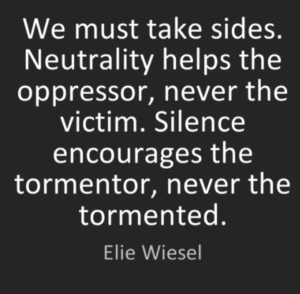 inequity is a 2022 priority for NMAC. We are working with the Black AIDS Institute, Latino Commission on AIDS, and the San Francisco Community Health Center to bring a portion of the Minority AIDS Initiative back to its original congressional Intent. We’ve hired Dr. Maya Cummings to lead the charge. COVID has once again exposed health disparities in communities of color. It is time to build a healthcare infrastructure that addresses these inequities. Ending the HIV epidemic in America should leave a legacy of prevention, healthcare, housing, and wrap around services in all the communities hardest hit by HIV. These services could be the foundation for improving the quality of life for all communities. Yes, we are thinking beyond HIV.
inequity is a 2022 priority for NMAC. We are working with the Black AIDS Institute, Latino Commission on AIDS, and the San Francisco Community Health Center to bring a portion of the Minority AIDS Initiative back to its original congressional Intent. We’ve hired Dr. Maya Cummings to lead the charge. COVID has once again exposed health disparities in communities of color. It is time to build a healthcare infrastructure that addresses these inequities. Ending the HIV epidemic in America should leave a legacy of prevention, healthcare, housing, and wrap around services in all the communities hardest hit by HIV. These services could be the foundation for improving the quality of life for all communities. Yes, we are thinking beyond HIV.
If COVID has taught us nothing else, we’ve learned it is important to have a healthcare infrastructure and wrap around services that are nimble and flexible with services that can pivot to any new challenges facing the world. That is the lesson from HIV: how to take something horrible to do something good. We have spent decades building an HIV infrastructure it would be foolish to dismantle. Once again HIV can lead by not only ending the HIV epidemic, but also working on the vanguard to determine best practices to pivot to any new challenge. COVID exposed our vulnerabilities. 2022 is about rethinking that paradigm.
What helped NMAC survive was our conferences. I’ve done a version of USCHA since 1987 when it started as the National Skills Building Conference. Conferences and meetings create an unrestricted funding stream that covers expenses that cannot be charged to the government or corporations. NMAC runs some of the largest meetings in our movement and we do it by prioritizing the communities hardest hit by HIV. Our meetings are more than another boring conference; our gatherings are a family reunion.
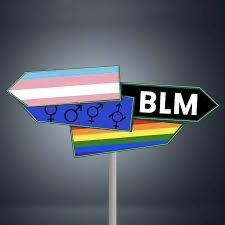 People hardest hit by HIV live at the intersection of HIVphobia, racism, homophobia, sexism, transphobia, and sexphobia. Too many have been rejected by their birth families, so NMAC works to build a family of choice, a family who will embrace and celebrate the diversity of our movement and its authenticity. No judgements, just love and respect. It is so simple in theory but, with the current culture wars, difficult to implement. In a world where “don’t say gay” is real, how do we educate about HIV? It is also a difficult time for too many of the communities we need to reach. The United States Conference on HIV/AIDS and the Biomedical HIV Prevention Summit are safe havens. It is not easy to do, and we often get it wrong, but we never give up. I think that’s part of the reason we’ve still here; we acknowledge our mistakes and work to do better. Quite frankly, the expectations on NMAC are the same expectations for health departments and federal agencies. We expect you to be our safe haven, a place where we are more than tolerated, we are celebrated. How to do it in this political environment will be a challenge, especially given what is happening in certain states.
People hardest hit by HIV live at the intersection of HIVphobia, racism, homophobia, sexism, transphobia, and sexphobia. Too many have been rejected by their birth families, so NMAC works to build a family of choice, a family who will embrace and celebrate the diversity of our movement and its authenticity. No judgements, just love and respect. It is so simple in theory but, with the current culture wars, difficult to implement. In a world where “don’t say gay” is real, how do we educate about HIV? It is also a difficult time for too many of the communities we need to reach. The United States Conference on HIV/AIDS and the Biomedical HIV Prevention Summit are safe havens. It is not easy to do, and we often get it wrong, but we never give up. I think that’s part of the reason we’ve still here; we acknowledge our mistakes and work to do better. Quite frankly, the expectations on NMAC are the same expectations for health departments and federal agencies. We expect you to be our safe haven, a place where we are more than tolerated, we are celebrated. How to do it in this political environment will be a challenge, especially given what is happening in certain states.
When state or federal rules prevent you from saying certain things, maybe it’s time to use community. With a new national PrEP initiative, your ability to reach us is key to success. From NMAC’s perspective it is less about cost and more about outreach, particularly community-based outreach. I know I’ve been complaining about the lack of people of color on PrEP, but the latest numbers tell me to be concerned about the overall lack of people on PrEP. How do we reach the targets in the updated National HIV/AIDS Strategy and do it in a syndemic way with STDs and Hepatitis? NMAC looks to the White House for leadership as they prioritize community to figure out solutions.
 I want to thank everyone who made these 35 years possible. NMAC gets to survive and` thrive because key leaders stood up and vouched for us at critical times. This work is very personal, sometimes too personal. I continue to fight in memory of all the friends I lost. They are too many to remember and they still haunt my dreams, but it’s getting better. Work at NMAC is how I move beyond the PSTD from the early days. I don’t think I will ever fully heal, but this work teaches me how to live with the loss by working to end the HIV epidemic in America.
I want to thank everyone who made these 35 years possible. NMAC gets to survive and` thrive because key leaders stood up and vouched for us at critical times. This work is very personal, sometimes too personal. I continue to fight in memory of all the friends I lost. They are too many to remember and they still haunt my dreams, but it’s getting better. Work at NMAC is how I move beyond the PSTD from the early days. I don’t think I will ever fully heal, but this work teaches me how to live with the loss by working to end the HIV epidemic in America.
Yours in the Struggle,
Paul Kawata
NMAC
NMAC Announces Covid Safety Protocols for 2022 Biomedical HIV Prevention Summit
NMAC has announced Covid safety protocols for the 2022 Biomedical HIV Prevention Summit in Chicago April 20 and 21:
All conference attendees must be fully vaccinated. Fully vaccinated for the Summit means that registrants have received both shots and a booster if the second shot was received more than six months prior to the conference. Registrants must upload their vaccine card no later than Friday, April 8 to https://hosted-pages.id.me/health/2022-biomedical-hiv-prevention-summit. If we do not receive vaccine credentials by this date registrants will not be allowed entry to the conference.
Masks are encouraged but not required in the Summit conference space (plenary ballroom, foyers, workshop rooms, exhibit space). For updated information on the City of Chicago’s mask requirements, visit their website – https://www.chicago.gov/city/en/sites/covid-19/home.html.
“We want to make sure that the 2022 Biomedical HIV Prevention Summit is as safe as possible for attendees,” said Paul Kawata, Executive Director of NMAC. “While there is no absolute guarantee, we want to take every reasonable precaution to prevent Covid transmission during the Summit, particularly for our attendees who are living with HIV. These protocols are based on guidelines recommended by the CDC and by requirements posted by the city of Chicago.”

